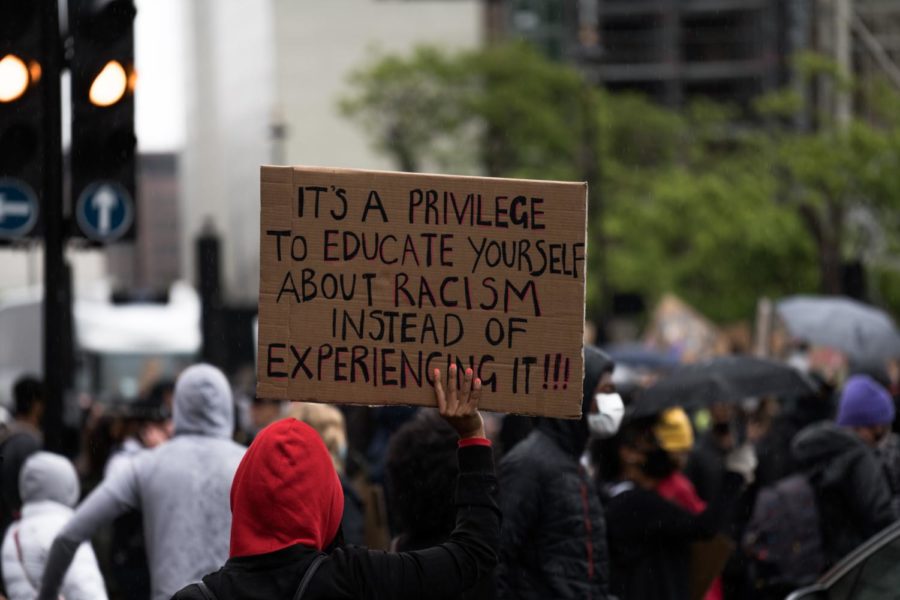Hellman: Systemic racism needs systematic solutions
July 13, 2020
The words “systemic racism” are becoming more and more common to hear with each passing day. The implications behind these words require deep levels of research to comprehend. Systemic racism is not a simple or straightforward conflict to solve, as it has been ingrained into the American lifestyle for centuries. It seems fitting then, that solutions to the complex topic of systemic racism must be far from simple as well.
Solutions to uproot racism from the systems that govern our country must stem from the origins of oppression and discrimination. Without complete understanding of systemic oppression, racism will continue to evolve within the cracks of failed past solutions. We have seen racism evolve as redlining, mass incarceration disguised as a war on drugs and countless other discriminatory laws. These policies continue to oppress Black and Brown people. They have continued to develop because white people are convinced or manipulated to see their effectiveness, when the policies’ only true foundation is racism. This is also explained well in the Netflix documentary “13th,” in which John Ehrlichman, the former domestic policy chief, stated, “We knew we couldn’t make it illegal to be either against the war or Black. But by getting the public to associate the hippies with marijuana and Blacks with heroin and then criminalizing both heavily, we could disrupt their communities.”
Connecting this to Ames and Iowa State can be beneficial in creating genuine and long-term solutions to systemic racism. Iowa State University’s student population is 74 percent white, which makes sense for being located in a state that is 90 percent white. It is my belief that increasing racial diversity on campus is important, however we should understand there are limitations to this diversity.
It is not enough to try to encourage Black and Brown people to go to Iowa State; this does nothing to address the many levels of systemic racism playing against them. Long-term solutions should be implemented at the systematic level and target the faults of past policies.
Iowa State University should not expect a racially diverse student population until there are policies that uplift and aid families of color at a young age. This would allow Black and Brown students to participate in more of the privileges white students often don’t think twice about. Over time, this would hopefully reduce the financial burden on families of color, which is a product of racial oppression, and work to dismantle ingrained and systemic racism.

















